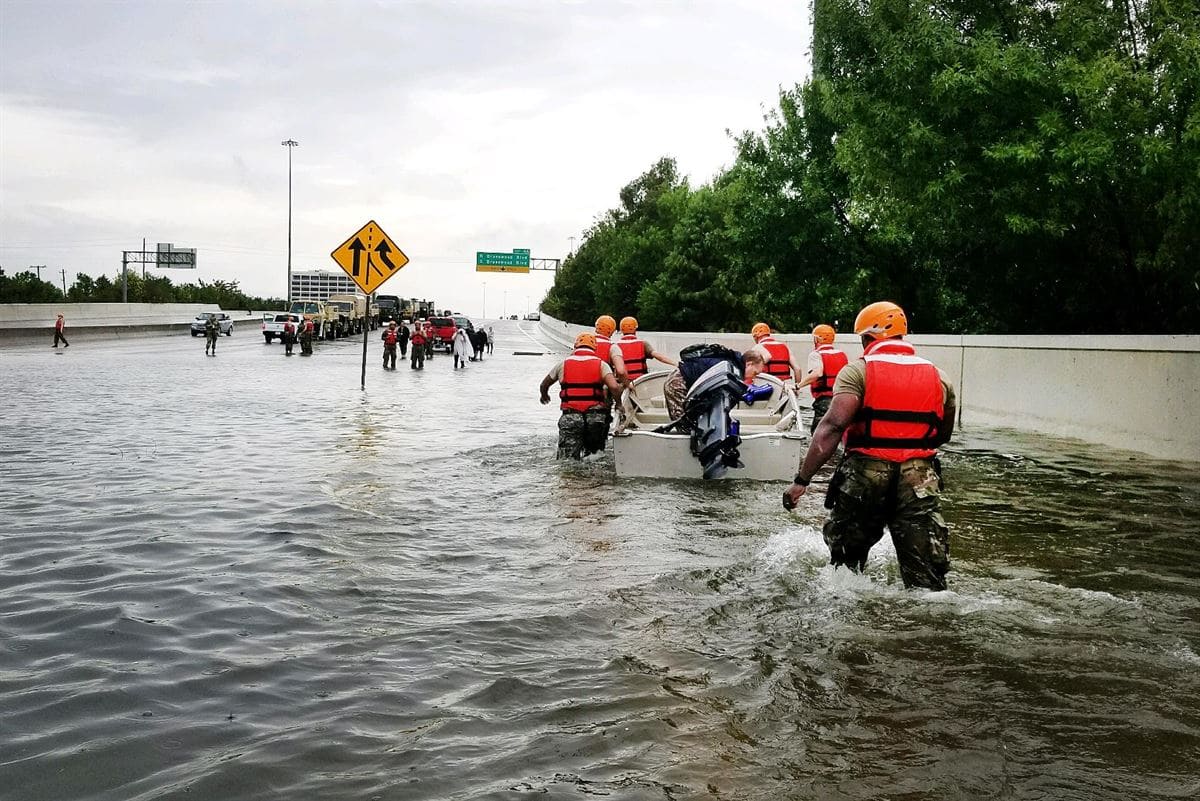August 30, 2017
By Teri Brister, Ph.D.
As a lifelong resident of Mississippi, I have experience with hazardous weather—extreme humidity, triple-digit temperatures, tornadoes, thunderstorms and hurricanes. Even though we know that these threats are possible, there are some things we can never be fully prepared for. I’m talking about the life-altering events that forever shape us moving forward—events that become the before-and-after by which we remember things. Events like Hurricane Harvey.

This disastrous storm has taken lives, destroyed homes and separated families. Thousands of people have had to put their lives on hold as they combat this catastrophic stressor. At NAMI, we define a catastrophic stressor as:
- Unexpected
- Unlike any earlier experience
- Dangerous or threatening to yourself or others
- Emotionally impactful
This type of stress and devastation can have a profound emotional impact on the people affected. It especially has an impact on those who are most vulnerable: the elderly, those who are living in poverty or are homeless and those with disabilities.
For people with serious medical conditions—like diabetes, high blood pressure or mental illness—disasters like Hurricane Harvey can be life-threatening on many levels. For example, when people are fleeing for their lives, they generally don’t have time to prepare. They may grab their wallet, cell phone, keys and perhaps a change of clothes. They may not think to take their medication with them. It’s instances like these that can heighten catastrophic stress for these populations even further.
It’s important to do what you can to help those who may be experiencing a mental health crisis in addition to the crisis at hand. Help your neighbor however you can. For those displaced by Hurricane Harvey, a helpful general list of resources—such as shelter, food, flood claim assistance and real-time flood information can be found here. There is also information on how to help those affected by Hurricane Harvey.
NAMI is here to help as well. Here are some additional resources for you to access:
Helplines
- Disaster Distress Helpline is a 24/7, 365-day-a–year, national hotline dedicated to providing immediate crisis counseling for people who are experiencing emotional distress related to any natural or human-caused disaster. This toll-free, multilingual, and confidential crisis support service is available to all residents in the United States and its territories. Stress, anxiety, and other depression-like symptoms are common reactions after a disaster. Call 1-800-985-5990 or text TalkWithUs to 66746 to connect with a trained crisis counselor.
- Magellan Crisis Line is a 24-hour crisis line for all residents of Texas. The toll-free number to access free, confidential counseling services is 1-800-327-7451.
- Crisis Text Line. Text NAMI to 741-741 to connect with a trained crisis counselor to receive free, 24/7 crisis support via text message.
- NAMI HelpLine is a free service that provides information, referrals and support to people living with a mental health condition, family members and caregivers, mental health providers and the public. The NAMI HelpLine can be reached Monday through Friday, 10 a.m.–6 p.m., ET. The number is 1-800-950-NAMI (6264).
Digital Fact Sheets
- Warning Signs and Risk Factors for Emotional Distress
- Coping After Disaster/Trauma
- Disaster Distress Helpline
- Tips for Survivors: Coping with Grief After a Disaster or Traumatic Event
- Tips for Survivors of a Disaster or Other Traumatic Event: Managing Stress
- Tips for Health Care Practitioners and Responders: Helping Survivors Cope with Grief After a Disaster or Traumatic Event
- Psychological First Aid for First Responders: Tips for Emergency and Disaster Response Workers
The recovery time for this storm will last for months or even years. As much as possible, take care of yourself and be aware of the stress that you and your loved ones may be experiencing. The important thing to remember is that you are not alone. There is help out there.
Teri Brister is director of knowledge integration at NAMI.
Submit To The NAMI Blog
We’re always accepting submissions to the NAMI Blog! We feature the latest research, stories of recovery, ways to end stigma and strategies for living well with mental illness. Most importantly: We feature your voices.
LEARN MORE